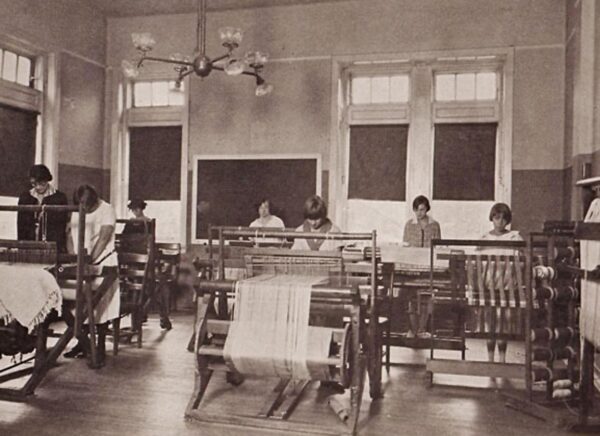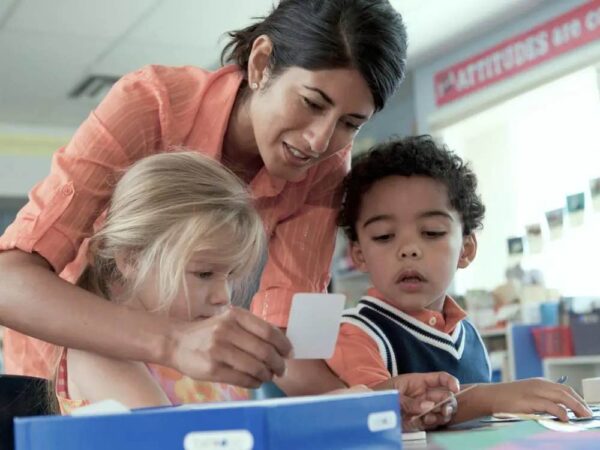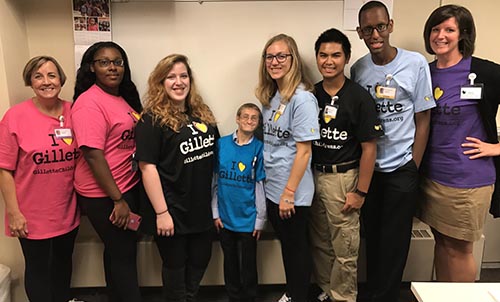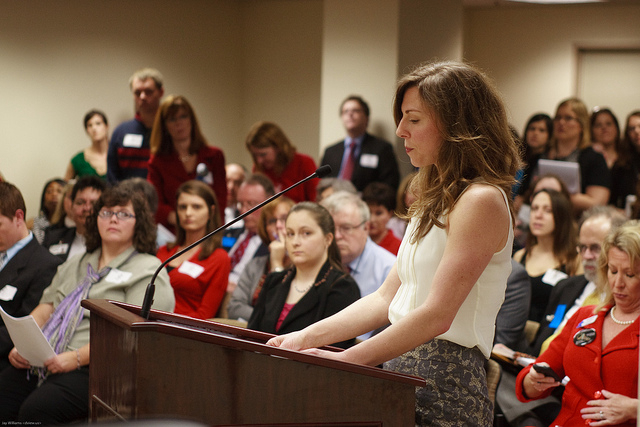Overview
The goal of Partners in Policymaking is to educate people with developmental disabilities, their family members, and supporters to become active partners with those who make the policies that impact their daily lives and opportunities for an appropriate, inclusive education, competitive community employment, independent living, and community inclusion. In other words, Partners in Policymaking focuses on helping people with developmental disabilities and their supporters to build positive, personal relationships with policymakers and become partners in the policymaking process to change the system that supports – and sometimes restricts – the lives of people with developmental disabilities.
The free, on-demand Partners in Policymaking Online Curriculum consists of five courses that can be complete by anyone seeking to understand key issues impacting people with developmental disabilities. You can:
- Explore the history of people with developmental disabilities and how they lived, learned, and worked through time, including critical legislation, social movements and people that helped propel change.
- Explore the special education system and learn how parents can help shape their child’s educational experience by understanding the laws and actively participating in the process.
- Explore employment for people with developmental disabilities and understand common employment supports, services and service providers that are available to help people with developmental disabilities prepare for competitive integrated employment, enter the workforce and be successful at work.
- Explore the components of a meaningful life in the community and understand how being treated with dignity and respect, self-determination, family supports, assistive technology and access to accessible, affordable housing impact independence, interdependence, community participation, and inclusion.
- Explore public policymaking and how people with developmental disabilities can participate in the policymaking process to create positive, lasting systems change.
Register just once to access all five courses. You can access the courses and course units in any order.
A Spanish version is available.
NOTE: A Certificate of Completion is no longer offered
The history of people with developmental disabilities is a powerful story of discrimination, segregation, abuse, ignorance, silence and, sometimes, good intentions that brought bad results. For the most part, it is the story of people with no power, no choices, no voices, and no champions. Fortunately, that is changing, but it is up to each generation and each person to learn from the past and decide what to do with this information. In Partners in Time, you will travel through time to explore how people with developmental disabilities lived, learned, and worked from ancient times to the present and discover how history continues to repeat itself. You’ll also learn about important changes that are helping to create to a more inclusive society and new opportunities for people with developmental disabilities.

Schools are places where children learn new information and skills and are exposed to important life lessons, like accepting and respecting themselves and others, personal responsibility, and the importance of contributing to the community. It is also a place gain the skills and experiences that will prepare them to work at meaningful jobs in the future. Partners in Education explores how children with developmental disabilities have been educated over time and the difference between general education, special education, and inclusive education. You will learn about key laws governing special education in the United States and how you can use them to ensure that your child receives an inclusive appropriate education with proper supports and access to technology. You will also explore your role as your child’s advocate in the special education system and understand the elements of an Individualized Education Program and what you can do if things aren’t working.

For most people, having a job is essential to independence. A job is more than a paycheck. It is also a way to meet new people, make choices about your life, become more independent, and contribute to your community. The experiences of thousands of people with developmental disabilities who are employed in their communities prove that everyone can work with the right support. People with developmental disabilities encounter unique challenges when it comes to finding a job in the community. Partners in Employment is designed to help people with developmental disabilities, their family members, and supporters understand the employment system and common barriers to employment that people with developmental disabilities face. You’ll also learn about competitive integrated employment and common employment supports and services that are available to help people with developmental disabilities prepare for community employment, find jobs, and work successfully. You’ll also learn about the job search process, how it differs for people with developmental disabilities, and explore some of the tools you can use to find work in the community.

Everyone has the right to a full, meaningful life in the community. Each person defines a “meaningful life” differently. What is meaningful to you may not be as important to someone else. In Partners in Living, you will learn about the common elements of a meaningful life and why people with developmental disabilities should be treated with dignity and respect, including recent efforts to stop use of demeaning terms and labels. You’ll learn about independence and interdependence. You’ll explore important milestones and critical legislation that extended civil rights protections and opened new opportunities for people with developmental disabilities to live, learn, work, and participate in their communities. You will also learn about self-determination, the importance of personal choice and person-centered planning, and how you can use Medicaid waivers and other resources can be used to build a life in the community where people with developmental disabilities and their family members are supported and valued. Finally, you’ll explore community living and community inclusion, including independent living, accessible housing options and the impact assistive technology has on independence and community inclusion.

In a democracy, every person has the right to take their case to the men and women who are elected to make or amend laws and set policies on behalf of other citizens. Some people think that they can’t be good advocates because they don’t have special training. That’s not true. Every person, including people with developmental disabilities, can help change existing policies and create new ones. Partners in Making Your Case introduces the critical advocacy skills needed to create positive changes in the public policies and systems that impact people with developmental disabilities and their families. This course will help you understand how public policy is made, who makes it and how to identify specific policymakers who may be able to help. You’ll learn about the advocacy process and the importance of using your personal stories and experiences to bring issues to life. You’ll learn how to make your case in writing, in-person through testimony and meetings with policymakers, and through social media. Finally, you’ll learn about some ways you can organize with others to tackle a common challenge.


